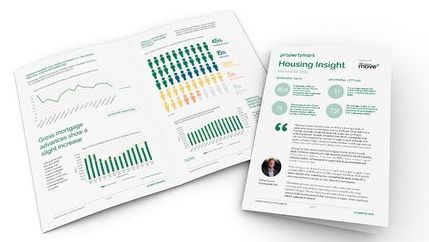Prepare your business for employment law changes coming in 2026
Reforms coming into force during 2026, following the Employment Rights Act 2025, will affect recruitment, staff management, and workplace policies across the UK, including in property agencies. With many firms employing a mix of negotiators, property managers, administrative staff, and apprentices, understanding the changes early will help agencies remain compliant and continue to operate effectively.
Chancellor focuses on economic stability in Spring Statement
Whilst nothing significant was delivered defining housing policy, the statement set the tone for future decisions. Yet, without sustained, targeted support for housing, the underlying pressures in the property market will remain. Transactions depend on confidence, investment depends on stability, and supply depends on a coherent long-term strategy.
Regulation of agents must be part of the solution to issues with Decent Homes Standard
The evidence that underpins the policy has been criticised by the Regulatory Policy Committee as not fit for purpose, with concerns raised about whether it can genuinely drive improvements in housing quality across the private rented sector (PRS). As the UK Government considers extending and reforming the DHS, it is vital that policymakers recognise a simple truth: standards alone will not improve homes unless they are enforceable, understood and supported by a professional, regulated sector.
Renters’ Rights Act: practical steps for letting agents to take now
With two months to go until the first changes take effect, letting agents should now be focused on operational readiness. Continuing our support for members, our latest webinar in a long series addressed the issues most frequently raised by agents. These included written information requirements, payment processes, rent increases, possession grounds and internal systems. With early planning, clear documentation and robust processes, agents can approach 1 May 2026 with confidence.
Silver surge: what’s driving a rise in older homebuyers?
New analysis of a decade of homemover data shows that buyers aged 50 – 59 are now the fastest-growing segment of the UK housing market. The findings highlight a significant shift in market activity that agents should factor into their business planning and service offerings. The growth of the older buyer group does not signal a decline in other segments. However, it does underline the importance of understanding who is driving transactions at any given time.
New approach – but no uplift – for Disabled Facilities Grant
The reforms are designed to better reflect current patterns of need and ensure funding is distributed more fairly and will influence how quickly adaptations can be delivered for disabled homeowners and renters, including those in the private rented sector (PRS). However, the UK Government has not lifted the cap on the maximum grant amount, leaving some people still unable to cover the cost of necessary work.
Joined-up thinking on EPCs is needed to balance with housing reality
Energy efficiency policy has major implications for the private rented sector (PRS), homebuyers and sellers, and the wider housing market. Our response to the UK Government’s consultation on reforms to Energy Performance Certificates (EPCs) and the introduction of the Home Energy Model sets out clear recommendations to ensure changes are grounded in real-world property conditions and avoid unintended consequences for supply.
1 April 2027 is the date for updated high-rise fire safety rules
Jersey’s States Assembly has passed regulations establishing a statutory fire safety regime on the island. The new legislation responds to lessons from the Grenfell Tower Inquiry Phase 1 to modernise ongoing fire safety management in high-rise homes as well as protect residents and emergency responders. Further guidance is expected from the Assembly before implementation.
Short-term lets in focus as Northern Ireland reviews tourist accommodation rules
The Department for the Economy (DfE) is consulting on reforms which, if progressed, will shape how tourist accommodation is defined and regulated for years to come. For agents involved in short-term lets, clarity on categories and criteria will be critical to ensure compliance without disrupting business models, and any final regulations must recognise the role of professional agents, reflect the realities of the market, and strike the right balance between consumer protection and practical delivery.
Issue 62: Spring 2026
This issue, spring clean your marketing strategy with 10 top tips for smaller agencies from Louise Hudson, Marketing Director at LSL Estate Agency Franchising, explore the trends set to redefine the commercial property market with Jansons Property MD, Andy Jansons, and hear from Micheal Cook, CEO of LRG on his view of the market in 2026.
Introduction of Regulatory Board marks a significant step for Propertymark
The new Board formalises the separation between Propertymark’s regulatory and representative functions, ensuring that regulation is independent, impartial and firmly focused on the public interest. This approach aligns us with best practice across other regulated professional sectors, reinforcing our long-standing commitment to high standards and accountability and strengthening professionalism, transparency and public trust across the property sector.
AML registration failures still the top cause of painful agent fines
HM Revenue and Customs (HMRC) has issued hundreds of thousands of pounds in new fines to property agents for failures to comply with anti-money laundering (AML) regulations, reinforcing the consequences of getting compliance wrong. The latest enforcement action covers the 2025–26 reporting period and includes 170 penalties issued to estate agency businesses, totalling more than £835,000. Letting agents are also within HMRC’s supervisory scope where transactions meet the required thresholds.
Housing insight report December 2025
The UK housing market shows cautious resilience as buyer demand and sales volumes rise, but long transaction times and falling stock continue to limit momentum. In the rental sector, tenant demand has eased slightly, yet pressure remains intense as supply stays tight, rents continue to rise, and uncertainty unsettles landlords and tenants.
Faulty insulation has left households financially exposed
A House of Commons Public Accounts Committee report states that the UK Government’s energy efficiency installation initiative has suffered serious failings at every level, leaving more than 30,000 homes with defects after external and internal wall insulation was installed through ECO4 and the Great British Insulation Scheme.
Meaningful home buying and selling reform must deliver for agents and consumers
Propertymark supports the UK Government’s ambition to reform the home buying and selling process and agrees that change is long overdue. Reform must be practical, proportionate and focused on outcomes. By improving upfront information, raising professional standards, embracing digital solutions and reducing duplication, reform can deliver faster, more reliable transactions that work for agents, consumers and the wider economy.
Material information reform must be shared, digital and realistic
Proposals to standardise the details provided in property listings are intended to improve transparency, speed up transactions and reduce fall-throughs, but without the right structure, shared responsibility, and practical implementation, the reforms risk placing unrealistic burdens on agents and slowing the process further. Propertymark supports the principle of better upfront information, but stresses that the current approach does not reflect how transactions work in practice.
















